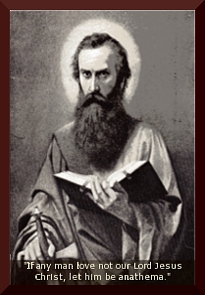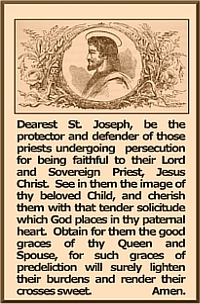The excerpts as well as the title of this post are from the sermon of Right Rev. Msgr. John P. Chidwick ( d.1935) delivered in 1923, on the occasion of the Golden Jubilee of St. Agnes church in New York, here used to highlight the hermeneutics of (dis)continuity in the post Vatican-II Church.
“God wills to be worshiped with all that is beautiful, rich, reverent and inspiring in nature as well as in humanity.”
“…revolutionists denied the dogmas of the Real presence and of the Sacrifice of the Mass, of the devotion to the Blessed Virgin and the saints, and of the existence of Purgatory. Accordingly, they swept from their churches the altars and their adornments…”
“The entire book of Leviticus is devoted to the careful and minute description of the elaborate ceremonies which were to be observed by priests and people in their approach to their Heavenly Father.”
Did not Solomon with divine approval search the known world of his day to obtain the most precious materials with which to erect the temple he built to the worship of the true and living God?”
“Inspired by our faith, genius has soared to the very threshold of heaven and catching glimpses of its ravishing beauty and glory.”
“The liturgy of holy church is not only monumental and inspirational, it is not only the outflowing and outpouring of her living soul….
…but it is also the fitting expression of her belief.”
“…the revealed truth, which cannot change, causes our liturgy to move with uniformity and harmony, everywhere essentially the same in all countries and all ages.
He concludes his sermon with this reference to the venerable Mass of the pre-Vatican II era, the Mass which we were wrongly led to believe had been abrogated:
“The full meaning of the Catholic liturgy was expressed beautifully by the illustrious Cardinal Bona when he wrote: ‘Although these ceremonies have no perfection and contain no holiness in themselves, they are nevertheless the acts of external religion, by which the soul is lifted up to the veneration of holy things, the mind is sublimated to heavenly thoughts, piety is nourished, charity is inflamed, faith is increased, devotion is strengthened, the more humble are instructed, the worship of God is adorned, religion is conserved and the faithful are distinguished from pseudo-Christians and the heterodox.’ “
This little presentation has been compiled in view of the 50th Anniversary of Vatican II.



